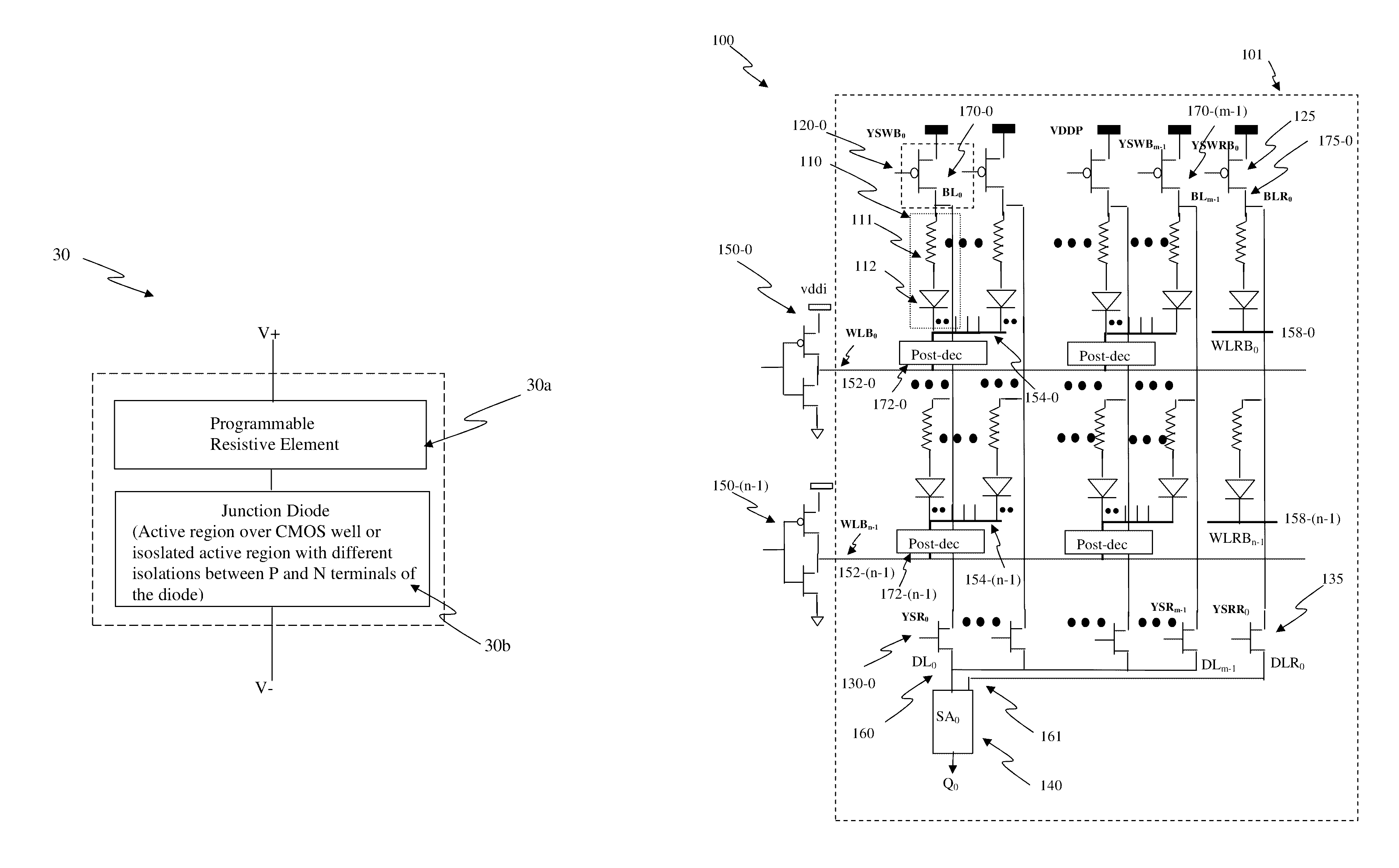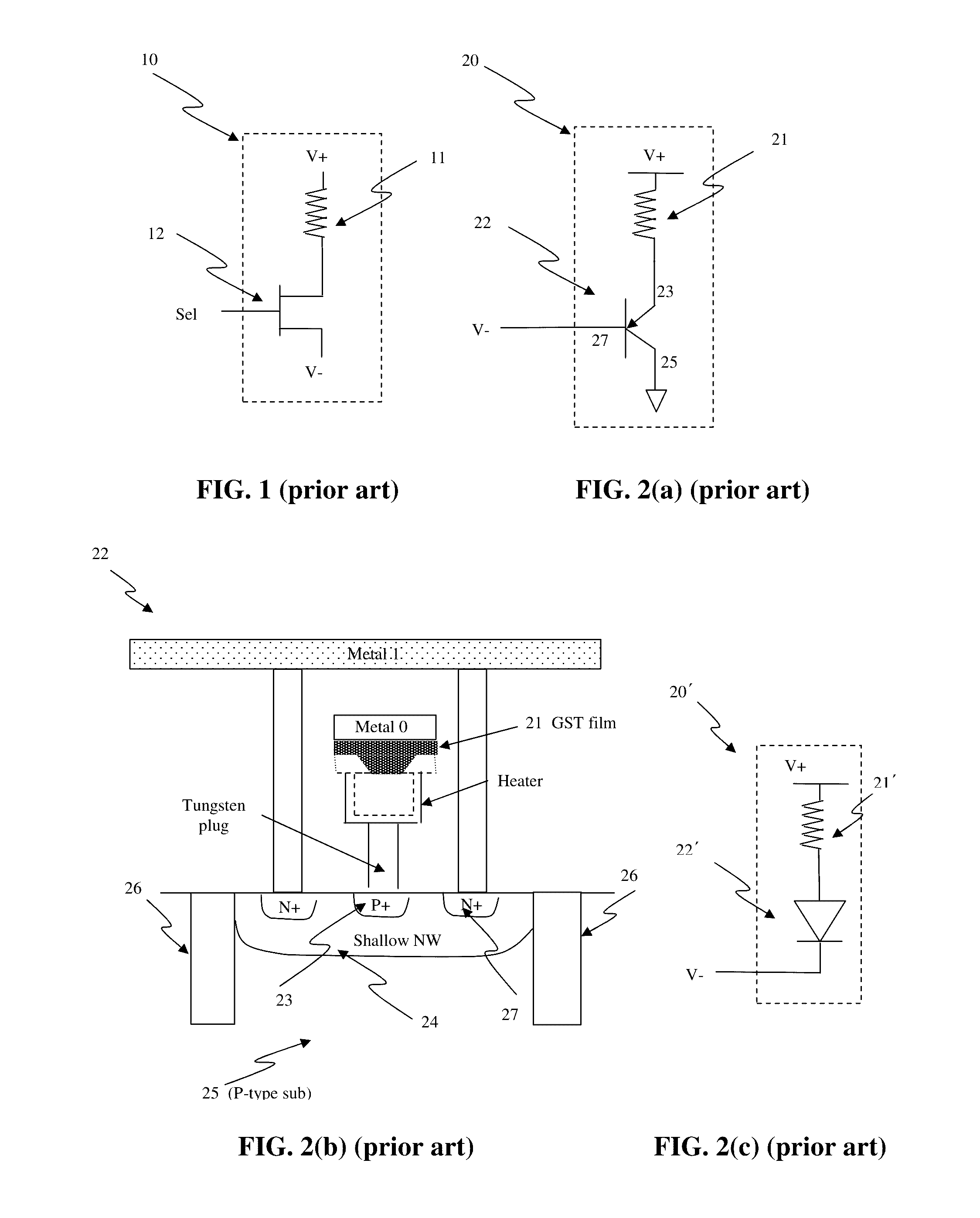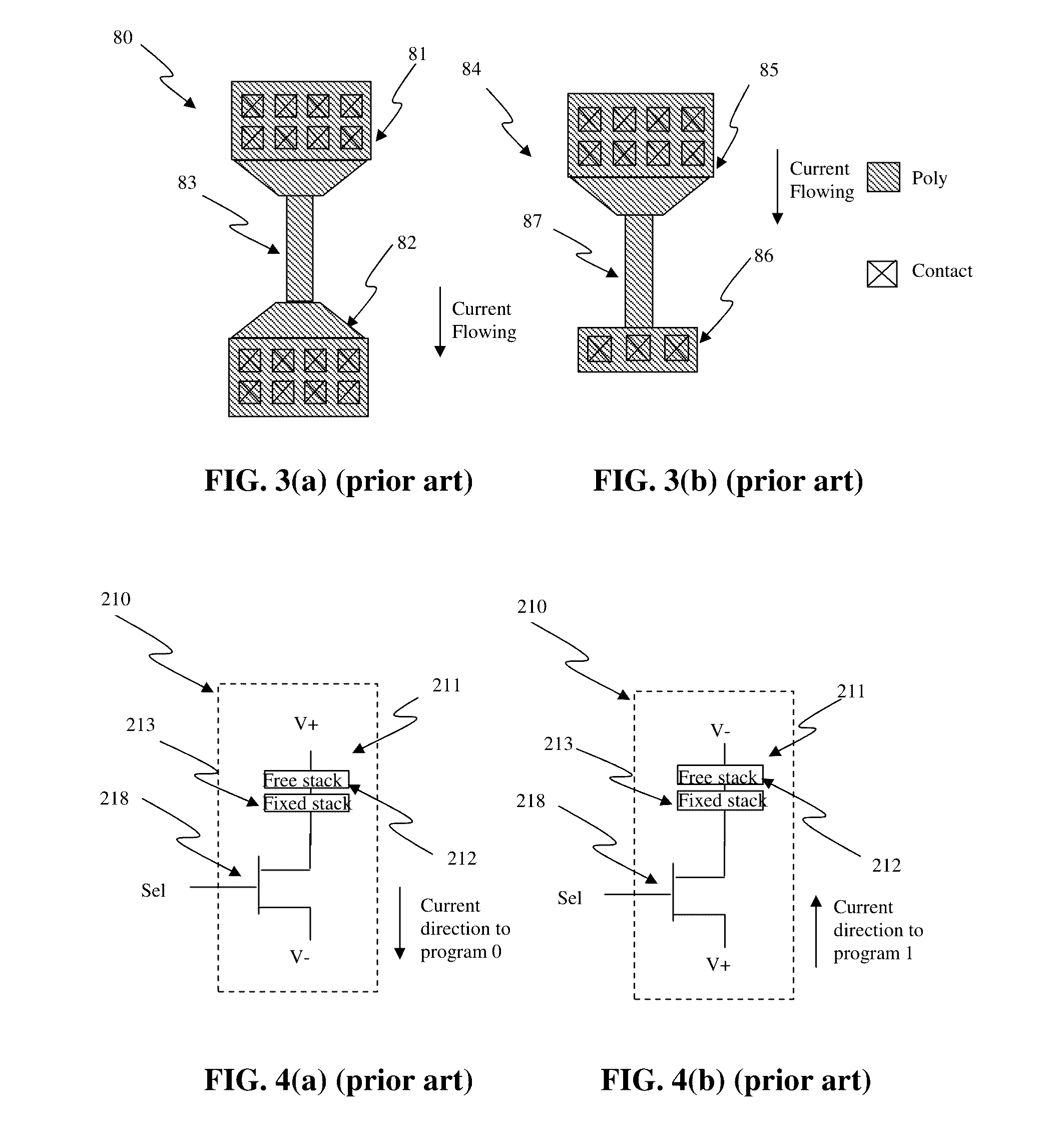Method and system of programmable resistive devices with read capability using a low supply voltage
- Summary
- Abstract
- Description
- Claims
- Application Information
AI Technical Summary
Benefits of technology
Problems solved by technology
Method used
Image
Examples
Embodiment Construction
[0166]Embodiments disclosed herein use a P+ / N well junction diode as program selector for a programmable resistive device. The diode can comprise P+ and N+ active regions on an N well. Since the P+ and N+ active regions and N well are readily available in standard CMOS logic processes, these devices can be formed in an efficient and cost effective manner. For standard Silicon-On-Insulator (SOI), FinFET, or similar technologies, isolated active regions can be used to construct diodes as program selectors or as programmable resistive elements. The programmable resistive device can also be included within an electronic system.
[0167]In one or more embodiments, junction diodes can be fabricated with standard CMOS logic processes and can be used as program selectors for One-Time Programmable (OTP) devices. The OTP devices can include electrical fuses are programmable elements. Examples of electrical fuses include interconnect fuse, contact / via fuse, contact / via anti-fuse, gate-oxide break...
PUM
 Login to View More
Login to View More Abstract
Description
Claims
Application Information
 Login to View More
Login to View More - R&D
- Intellectual Property
- Life Sciences
- Materials
- Tech Scout
- Unparalleled Data Quality
- Higher Quality Content
- 60% Fewer Hallucinations
Browse by: Latest US Patents, China's latest patents, Technical Efficacy Thesaurus, Application Domain, Technology Topic, Popular Technical Reports.
© 2025 PatSnap. All rights reserved.Legal|Privacy policy|Modern Slavery Act Transparency Statement|Sitemap|About US| Contact US: help@patsnap.com



